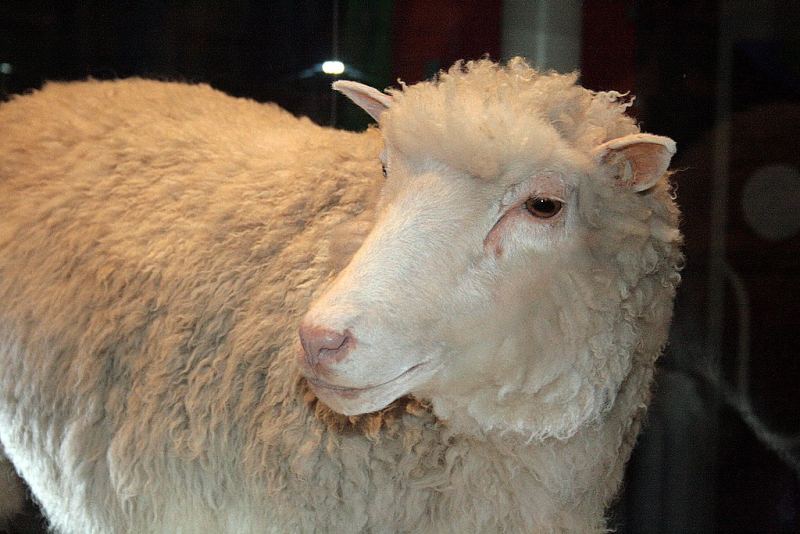
Early concerns that Dolly the cloned sheep suffered from arthritis were unfounded, a study suggests.
The research by the University of Nottingham and Glasgow suggests cloning is far safer than previously thought.
Dolly, born at the Roslin Institute in Edinburgh in 1996, made history by being the first mammal to be cloned from an adult cell.
There have been claims the process led her to age prematurely and left her vulnerable to diseases linked to ageing. Dolly died on February 14 2003, aged six.
But scientists have now published a radiographic assessment of the skeletons of Dolly herself, Bonnie, her naturally conceived daughter, and Megan and Morag, the first two animals to be cloned from differentiated cells.
Their findings have been published in the online journal Scientific Reports. They show that the skeletons, stored in the collections of National Museums Scotland in Edinburgh, bear radiographic OA similar to that observed in naturally conceived sheep and Nottingham’s healthy aged clones.
In fact, wear-and-tear in her joints was similar to that of other sheep of her age, regardless of how they were conceived, say researchers.
'Set the record straight'
Kevin Sinclair, Professor of Developmental Biology said the research felt it necessary to "set the record straight".
“Our findings of last year appeared to be at odds with original concerns surrounding the nature and extent of osteoarthritis in Dolly – who was perceived to have aged prematurely. Yet no formal, comprehensive assessment of osteoarthritis in Dolly was ever undertaken,” he said.
Sandra Corr, professor of small animal orthopaedic surgery at Glasgow University, said: “We found that the prevalence and distribution of radiographic osteoarthritis was similar to that observed in naturally conceived sheep, and our healthy aged cloned sheep.
“As a result we conclude that the original concerns that cloning had caused early-onset osteoarthritis in Dolly were unfounded.”
Dolly was created using the technique of somatic cell nuclear transfer, where the cell nucleus from an adult cell is transferred into an unfertilised oocyte, adeveloping egg cell, that has had its cell nucleus removed. This means that Dolly had exactly the same DNA as the donor sheep.
Cloning livestock has gathered much debate around its advantages and disadvantages. Princess Anne, a famous advocate for the practice, has previously said gene technology has got "real benefits" to offer.
On the subject of GM livestock, the Princess Royal said: “I have rare breed livestock so genetic modification would be a bonus if I could just find a way of making them a little more robust in terms of survivability. In a way that's long-term investment.”
